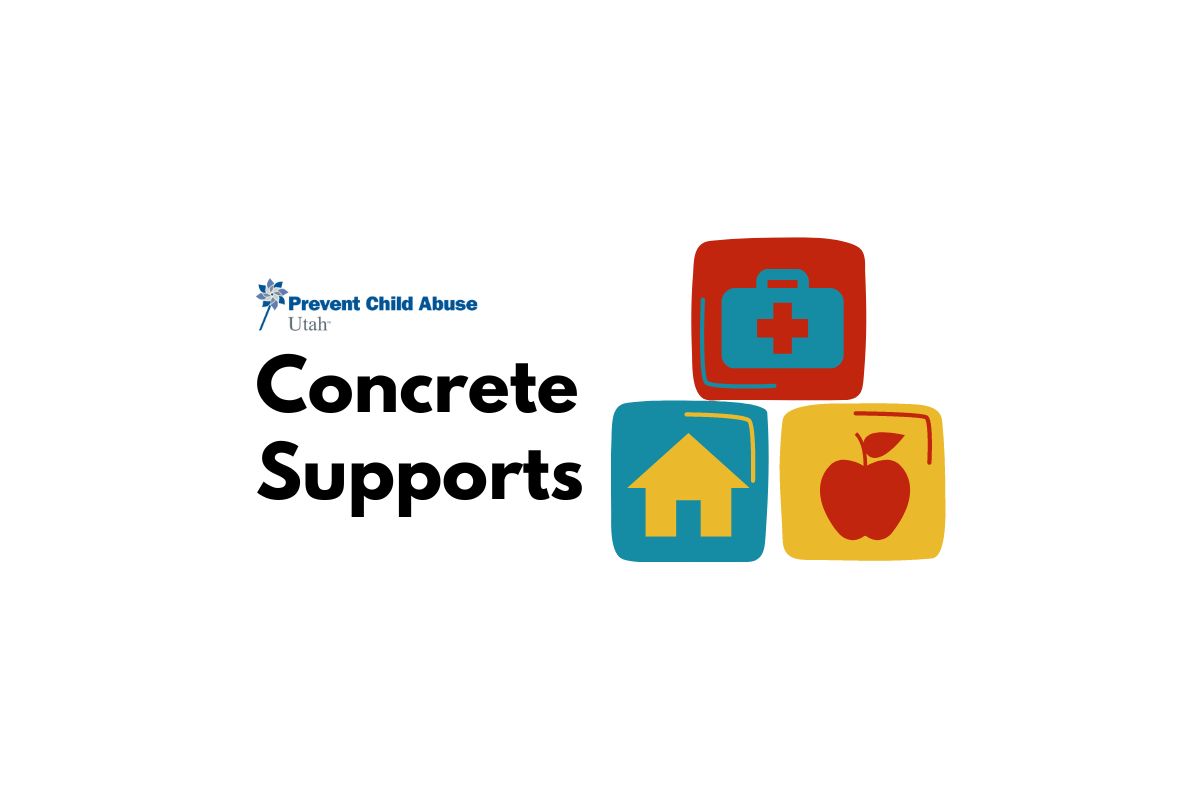
There are 5 protective factors for strengthening families: Parental Resilience, Understanding/Knowledge of Child Development, Positive Social Connections, Cognitive and Social-Emotional Competence, and Concrete Supports in Times of Need.
What are Concrete Supports?
Today we’ll talk about Concrete Supports in Times of Need. Concrete supports are roughly defined as having access to goods or services to support families during such times. They can be thought of as basic needs and can include:
- Safe Housing
- Access to healthcare
- Access to nutritious foods
- Education
- Child care
- Job training
Even though these examples are necessary, they aren’t always simple to obtain. The lack of basic needs could lead to added daily struggles, or elevated family stressors. Both of which could increase the risk of potential childhood abuse.
Sometimes these stressors can ‘stack up’. For example, a family might experience an unexpected job loss and health issue, which both cause issues with paying bills. Over time, these challenges and adversity can escalate and become too much to handle.
How they help:
It can often feel difficult, or even embarrassing, for a parent to seek assistance because they may feel inadequate or incompetent. To seek help with concrete needs, they might be apprehensive for a number of reasons. For example, reaching out to a mental health clinic may carry a certain stigma. Seeking out a domestic abuse shelter or a homeless shelter may have never been an option in the past.
Concrete supports can lessen the strain and offer support to families that would otherwise go without. For parents, gives them have a better understanding of their rights and the proper knowledge in accessing services, as well as learning how to navigate their way through such services and systems. They get a clear message that seeking help is not a failure or weakness, but rather a healthy way of improving circumstances.
Thus, helping parents gain skills to better manage family and personal stress, or gaining options on how to better manage a situation in times of adversity or even trauma, can help them do things differently next time. This leads to the ability to make better decisions in times of hardship, or even helping someone else in need.
Maslow’s Hierarchy of Needs
When referring to Maslow’s Hierarchy of Needs, one cannot achieve self-actualization/self-fulfillment without having physiological needs and safety needs being met. We know this because without meeting basic needs, motivation decreases, and when needs are deficient, growth and full potential may seem impossible to attain. But access to concrete supports affects the needs of families directly, therefore, decreasing the stress accumulated through such challenges.
Ultimately, having Concrete Supports in Times of Need readily available and accessible helps us support these families, if and when it is needed. They’ll be empowered to know what services are available in their area and how to access them. They’ll seek out stability which eventually will lead to basic needs being met.
How to Help
Providing concrete supports is something we all can do: It’s sponsoring a clothing drive or food drive, delivering hygiene products to an all-female abuse shelter, or volunteering at a health clinic or a homeless shelter. These are just a few examples on how these needs are potentially met in our community.
So, the next time you feel like lending a hand to a neighbor, giving a ride to a single parent in your neighborhood to the doctor, or donating money to a non-profit to help families pay their rent, you are helping your community meet their concrete needs. It may seem, or feel out of sight, but the assistance is crucial in helping a family get out of their rut and moving on to a better future.
If you need help getting concrete supports, call Utah 211 or visit their website at utah211.org. You can also contact our Parents as Teachers program.
